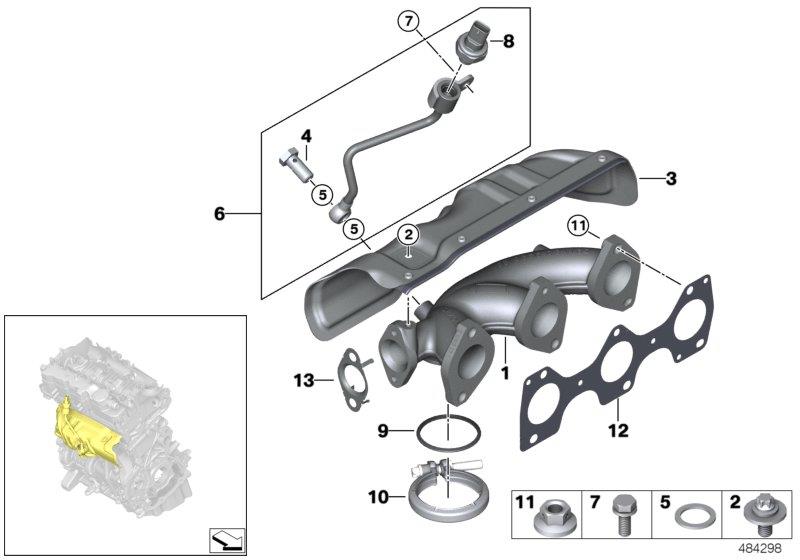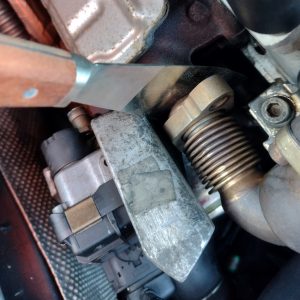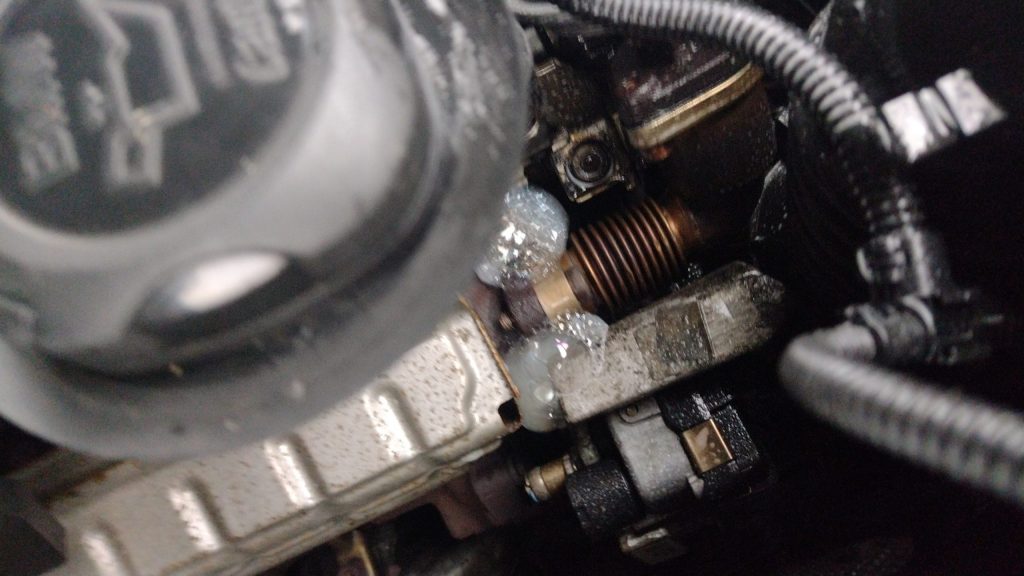After an engine swap, a BMW 1-series 118d diesel (E81) was smelly on start up. The cause was accidentally discovered. Cold engine check only.
Gas leaks in domestic pipes are sometimes found by spraying soapy water around joins. It was expected that there was a leak around the cam cover casing with the crankcase breather system and the plastic pipe that is notorious for cracking and gradually venting oily gases. It was also possible that the DPF and exhaust mesh may have been corroded.
The area was sprayed with a mixture of washing up liquid and 75% water (American English: “dish soap”) on an overnight cold engine on a sub-zero ºC day. Rather surprisingly there were large bubbles on the exhaust manifold to EGR valve. These were wiped off as initially it was assumed that some of the liquid had dripped down.
Video was taken shortly after wiping the first bubbles off, showing one possible source of the “smelly diesel” problem. The video is shot from the left side (when facing car) a 1-series 2007 model year. The large black circle on the upper left is the oil filler cap with engine cover removed. UK cars are right hand drive so it’s faster to film after starting the engine, probably a two person job for left hand drive cars.

Further inspection showed that there was no gasket installed at all, whomever had swapped the engine didn’t put one on. It’s a metal one common to many models of BMW (labelled number 13 in diagram above), part number 11628576287 should cost $10/ €10, the reference number links to a google search. The shape is similar to the gasket on the EGR shut off valve, presumably the temperatures this close to the exhaust are too high for the same type.
There’s just enough room to lever the EGR pipe away and slide the thin metal gasket in, though the prongs do catch. A flat “stripping knife” normally used for applying plaster or removing wall paper proved very useful; flexible and solid enough to get between the EGR pipe and exhaust manifold while spreading the pressure out to avoid denting or chipping any of the metal surfaces.

Some things to note:
- Cold engine only preferably as cold as possible, the exhaust manifold heats up very quickly and otherwise turns the soapy bubble mix to steam. On a hot engine BMW’s N47 manual states the exhaust gases can reach 850 ºC
- The mixture doesn’t require a lot but needs to be quite thick. It was sprayed on using a plant mister.
- The EGR has spring metal tubing that this gasket seals, when the exhaust manifold heats up this expands so the smell disappeared.
- There was no noticeable power loss with the very small leak.
In the summer the EGR cooler will be removed and the surfaces polished with a wire brush and if necessary an exhaust sealant used to fill in any pitting caused by corrosion. If is vital to avoid any driving sealant or debris slipping toward the turbo charge as these turn at over 100,000 rpm and at those speeds the turbo vanes are easily damaged.
